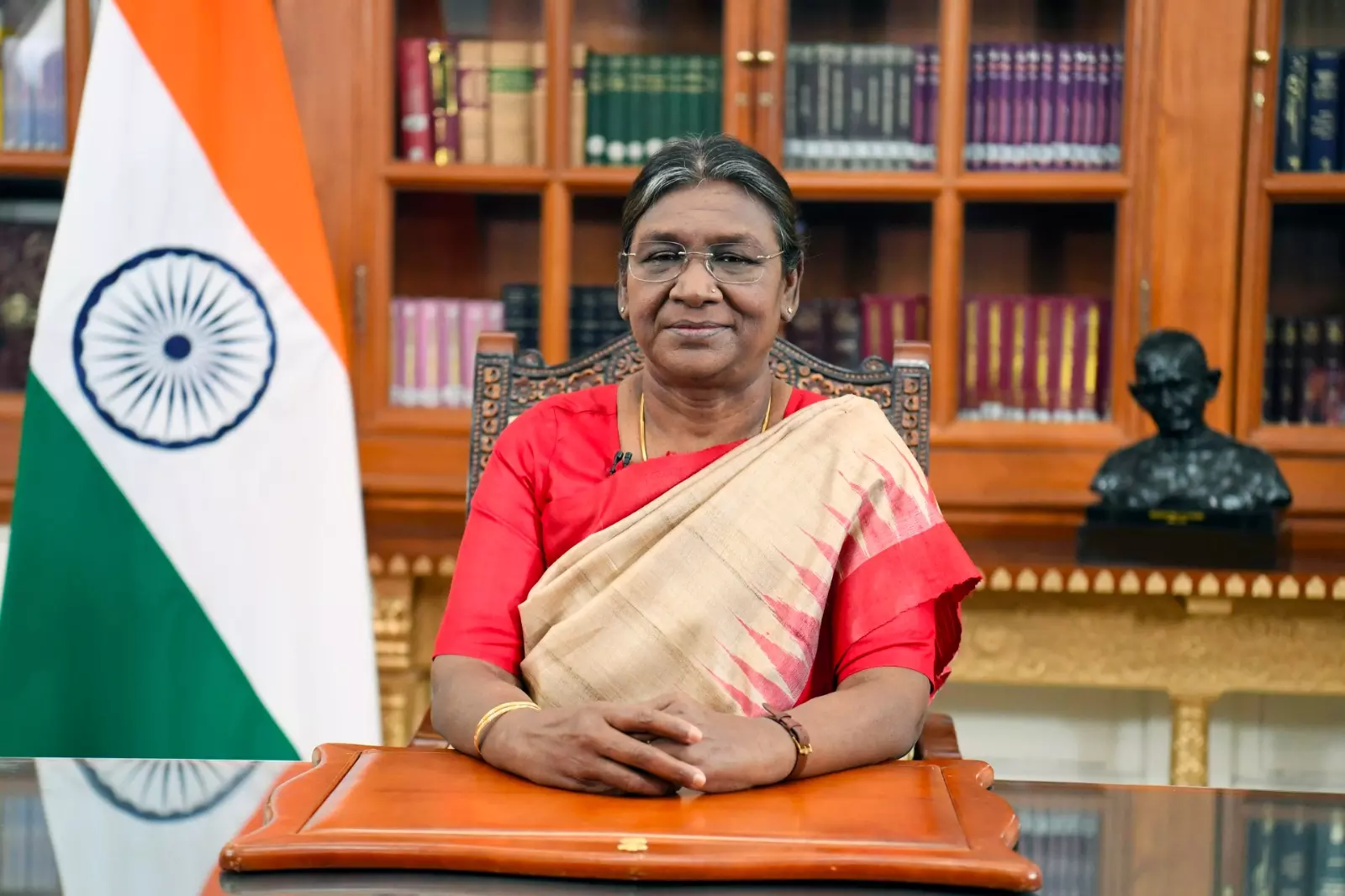‘Enough is enough’: Anguished President Murmu asks nation to wake up, end crimes against women
Murmu said no civilised society can allow daughters and sisters to be subjected to such atrocities
By Newsmeter Network
President Droupadi Murmu (File Photo)
New Delhi: Declaring that “enough is enough”, President Droupadi Murmu on Wednesday said it is time for India to wake up to the “perversion” of crimes against women and counter the mindset that sees women as “less powerful, less capable, less intelligent”.
“Those who share such views then go further and see the female as an object… We owe it to our daughters to remove the hurdles from their path of winning the freedom from fear,” Murmu said in an exclusive signed article for PTI.
Referring to the August 9 rape and murder of a junior doctor in a Kolkata hospital, a “dismayed and horrified” president said what is even more depressing is that it is part of a series of crimes against women.
Murmu said no civilised society can allow daughters and sisters to be subjected to such atrocities. “The nation is bound to be outraged, and so am I,” she wrote.
The hard-hitting and personalised article, titled “Women’s Safety: Enough is Enough”, is the first time the president has articulated her views on the August 9 Kolkata incident that has once again shaken the conscience of the nation and led to widespread, continuing protests.
The president gave the article after a detailed conversation on topical issues with a team of PTI senior editors, who called on her at Rashtrapati Bhavan to mark the 77th anniversary of the news agency’s founding on August 27, 1947.
“Even as students, doctors and citizens were protesting in Kolkata, criminals remained on the prowl elsewhere. The victims include even kindergarten girls,” Murmu said.
During the interaction, she recalled her recent meeting with a group of schoolchildren on Raksha Bandhan. “They asked me innocently if they could be assured that there would be no recurrence of the Nirbhaya-type incident in future,” the president said, referring to the brutal rape and murder of a physiotherapy intern in Delhi in December 2012.
She noted that an outraged nation then made plans and devised strategies, and the initiatives did make some difference. In the 12 years since, there have been countless tragedies of similar nature though only few drew nationwide attention, Murmu said.
“Did we learn our lessons? As social protests petered out, these incidents got buried into a deep and inaccessible recess of social memory, to be recalled only when another heinous crime takes place,” she said.
Taking a macro view of the rights of women, she said they have had to fight for every inch of ground they have won. Social prejudices as well as some customs and practices have always opposed the expansion of women’s rights, Murmu added.
“This is a rather deplorable mindset… This mindset sees the female as a lesser human being, less powerful, less capable, less intelligent,” she wrote.
In her view, it is the objectification of women by a few that is behind the crimes against women. “It is ingrained deeply in the minds of such people,” the president said, stressing that countering this mindset is a task for both the State and society.
Acknowledging that there have been laws and social campaigns, she said, “Yet, there is something that continues to come in the way and to torment us.”
History, the president said, “often hurts” and societies scared to face history resort to “collective amnesia” to bury their heads in the sand like the proverbial ostrich.
“Now the time has come not only to face history squarely but also to search within our souls and probe the pathology of crimes against women,” she said in her impassioned appeal.
“Let us deal with this perversion in a comprehensive manner so as to curb it right at the beginning. We can do this only if we honour the memory of the victims by cultivating a social culture of remembering them to remind us of our failures in the past and prepare us to be more vigilant in future,” Murmu said.
The society needs honest, unbiased self-introspection, and ask itself some difficult questions, the president said.
“Where have we erred? And what can we do to remove the errors? Without finding out the answer to that question, the half of our population cannot live as freely as the other half,” she said.
Inputs from PTI